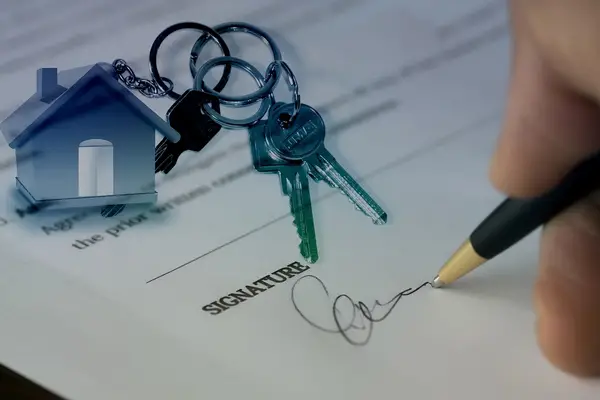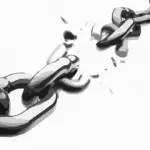
There’s possibly nothing more frustrating than going through the whole conveyancing process, which in itself can take weeks or months, only to find the buyer pulled out on exchange day!
So what do you do if your buyer pulled out on exchange day? If your buyer pulled out on exchange day in England or Wales there’s not much you can do about it. Buyers are not legally obliged to purchase until contracts have been exchanged. If you’re in a chain and you don’t want to lose your onward house purchase, you need to consider selling to an investor.
What happens if a buyer pulls out before exchange of contracts?
Unfortunately, there is not much you can do if a buyer pulls out from buying your home. Which is even the case if this happens at the very last minute and on exchange day. The reason is that in England and Wales until contracts are exchanged, the buyer isn’t legally obliged to purchase your property.
Additionally, the buyer doesn’t have to pay for any of your costs you’ve incurred throughout the conveyancing process.
What are the reasons buyers pull out?
Research carried out by the Post Office in 2018 found that 35% of house sale fall through. There are a number of reasons why buyers pull out, which include the following:
- The buyer changing their mind or they’ve found another property.
- The buyer’s finances are not in order or they are having difficulty in securing a mortgage.
- Sales falling through further up the chain.
- Seller pulled out due to slow progress.
- Problem identified during the survey.
- Gazumping* where the seller accepted a higher offer from another buyer.
- Gazundering where the buyer lowers their offer just before exchange of contracts.
- Change in circumstances like the loss of employment.
- Change in market conditions for example, Covid 19 or Brexit.
* Unfortunately, gazumping is legal in England and Wales and possible in Scotland too.
What you do next is entirely up to you, and whilst this may seem like stating the obvious, your options include the following.
What to do when buyer pulls out of house sale at the last minute
- Stay where you are and don’t go through with the sale of your house.
- Put your house back on the market and hope to find a buyer who will complete the purchase.
- Don’t sell your house and convert it into a buy to let investment.
- Sell to an investor who won’t mess you around.
- Sell at auction.
- Offer a compromise to the buyer.
Let’s look at these options in more detail.
1. If your buyer pulled out on exchange day you could stay and not go through with the sale
Whilst this option may not be attractive right now, as you are probably still very angry, it does have its merits. According to an article on Home Owners Alliance, 34% of homeowners say the risk of property chains breaking down might prevent them from selling again. So you wouldn’t be alone.
This is one of the reasons why I never buy and sell in a conveyancing chain. I always sell and rent before buying again. You should take a read of the 15 advantages of this approach to buying and selling houses.
Whether or not you may consider the idea of not selling will depend on your reason for selling to move in the first place. These might include:
- Selling to downsize. You could rethink this depending on your reason for downsizing in the first place.
- Selling to buy a bigger house. You could consider extending your current house if this option is available and planning permission is possible.
- Moving for work purposes. Unfortunately, if you are moving because of work purposes you will still have to move (assuming you still want the new job). But you might consider options three and four below.
- Moving abroad. If you’re set on emigrating you will need to do something with your house. If you don’t feel like going through the whole conveyancing process again, also consider options three and four below.
- Selling to move into rented. You may want to rethink this or consider three or more likely four below.
- Selling due to financial problems. Definitely, consider point four below.
If the idea of not selling doesn’t work for you, please read on.
2. Put your house back on the market and hope for a buyer who won’t pull out at the last minute
This is what most homeowners do if their buyer pulled out on exchange day. This may not be an option if you’re in a chain, as the vendors of the house you’re buying may not be happy to wait for you to sell again. Having said that, they are in the same position as you are.
They may wait, or they may put their house back on the market. If you are able to sell again before they find another buyer, you may be able to keep your onward purchase going.
This is why I’d recommend you consider option four below, as this will often mean you won’t lose your onward purchase. But also, it doesn’t necessarily mean you have to accept a low ball cash offer for this to work.
However, if you decide to re-list your house to sell in the conventional way, choose your estate agent carefully. It’s possible the sale falling through can be partly blamed on the estate agent for not doing their due diligence on the buyer. With this in mind, you might like to take a quick read of this article on how to choose an estate agent before you put your house back on the market.
3. Don’t sell your house and convert it into a buy to let investment
If you don’t sell your house you are no longer in a conveyancing chain. So instead of selling your house, you could convert your property into a buy to let investment instead.
This does mean you become a landlord and you will have to deal with tenants. However, by opting for this solution you won’t lose your onward purchase.
You will either need to get permission from your lender to let it out. Or alternatively, you will need to change your mortgage to a buy to let mortgage instead.
Before you consider this option, I recommend you read this article can I rent out my house without a buy to let mortgage and not tell the lender. You may need to convert your present mortgage into a buy to let mortgage, as this will be a way to extract your deposit money for your onwards purchase.
Your other consideration is the tax you’ll pay as a landlord. Unfortunately the government changed the rules on interest payments on buy to let mortgages.
Which means you only receive a 20% deduction on interest payments. The result is that you will be penalised if you are a higher rate tax payer. I also recommend you take a read of this article about what the real costs are of becoming an accidental landlord.
4. Sell to an investor who won’t pull out on the day of exchange
If you are worried about losing your onward house purchase. Plus you are concerned that if you sell your house in the conventional way you will lose your onward house purchase. Additionally, if you don’t like the idea of becoming a landlord yourself, you could contact us to see what options we can offer to help you.
I love to be creative when I buy house from homeowners. By being creative with the buying approach this means you don’t necessarily have to accept a low ball cash offer on your house. Before you contact us, please take a quick read of this article about selling your house on a lease option.
What I hope you will get from reading the above article is there’s complete flexibility in how we can structure the deal. The important element for this to work is the deal has to be a win-win. Which means the deal we structure has to be as much of a win for you, as it is for us. If we cannot agree on this, we both go our separate ways.
An example of how to create a win-win when your buyer pulls out of house sale at the last minute
For example, if we offered to pay you say 75% of the house as a cash offer, this is unlikely to represent a win for you. However, if we offered to pay full asking price for your house. But this full asking price offer is made on the basis you have to wait a period of say 5-10 years before you receive all of your money.
You may be happy to accept this if it means you can still buy your onward house. This begins to look like a win-win.
In return for you accepting such an offer to be paid full asking price later, we agree to pay you a non-refundable upfront ‘deposit’. Which is actually called an option fee. The amount of the deposit or option fee needs to be agreed between us. But for it to be agreed it must be a win for you as it is for us. In other words, the amount of the deposit has to be right.
The lower the option fee is as a percentage of your house valuation, the more likely it will be a win for us. Whereas the closer the option fee is to what you need as a deposit for your onward purchase, the more likely this will be a win for you too. If we can agree on a deposit that works for us both, we are likely to create the perfect win-win solution.
One further benefit to this option is that we don’t charge selling fees. However, if you are still in contract with your estate agent, you may still have to pay their commission.
If this sounds of interest, please contact us to discuss this, which will be on a no obligation, non-pushy phone call.
5. If your buyer pulled out on the day of exchange consider selling at auction
Selling at auction offers no guarantee of a house sale, but it is quick if your house does sell on the day of auction. You will have to set a reserve price at the auction, which is the price at which the sale won’t go through. If on the day of the action the bidding doesn’t reach your reserve price, your house won’t sell.
The other downside of auctions is the high auction fees when compared to selling through an estate agent.
6. If your buyer pulled out on the day of exchange offer a compromise to them
This idea may require you to swallow your pride, contain your anger and step back and look at the bigger picture. So what do I mean by offer a compromise?
Before I explain what I mean, here’s the reality of the situation if the sale falls through at the 11th hour, or just before exchange:
- You will still have to pay your solicitor‘s fees. This includes their fees for the sale of your house and for the purchase of your next house. Not to mention you’ll have paid for searches. This could amount to £1,000 to £2,000 combined buying and selling fees, plus search costs. Or even more!
- Valuation and/or surveyors fees. You will already have paid for the valuation fee and possibly upgraded this to a full building survey. These costs will be lost. This could be between £500 to £1,000 or more depending on the survey you choose and the price of your new house.
- You may lose your onward purchase. This might be your dream house and it may have taken months to find. If you lose this house you can kiss good bye to the search costs, solicitor fees and survey costs.
- You’ll have to start all over with marketing your house. You may be several weeks or even months down the road from when you accepted the offer. Even if you put your house back on the market today, your house sale will probably take another several weeks to complete.
With the above thoughts and potential lost fees and costs in mind, why don’t you make a visit to your estate agent. You could at least ask your estate agent to speak with the buyer and offer a deal for them to continue with the sale. This might include offering to reduce the price of your house by say £2,500 to £5,000. This may be enough to persuade them to reconsider the purchase.
Part of the compromise and persuasion will be to ask your estate agent to chip-in to the deal. If your house sale doesn’t go through, your estate agent will lose out on their commission. Ask them to consider chipping in with a portion of their commission towards your offer. For example, if your house sale was for £250,000. Then if your estate agent’s commission is 1.5%, that would mean a lost fee to them of £3,750.
What if they were to reduce their fee to 1%. This would mean their revised commission would be £2,500 instead. That means you save £1,500 including VAT (£250,000 x 0.5% x 1.2). They may argue they’d make the commission when you sell to the next buyer so won’t lose out. But you could drive a hard bargain and say you would consider changing to another estate agent.
The compromise may not work, but it’s worth a try. But only if you’re prepared to swallow your pride, but also if the buyer is at least still interested.
Do I have to pay solicitor fees when buyer pulls out?
If your buyer pulls out when you’re selling your house you are still obliged to pay your solicitors fees. If your buyer pulled out on the day of exchange your solicitor’s fees are likely to be the majority of what was quoted, as most of the work will have been done at this stage in the process.
At what point can a buyer not pull out?
The only pointy at which a buyer cannot pull out is after contracts have been exchanged. On the day of exchange of contracts the buyer’s deposit, which is usually 10% of the purchase price, is paid over to the seller’s solicitors.
If the buyer pulls out after contracts are exchanged, they are likely to lose their deposit. They may also be liable for damages towards the sellers too. You might want to have a read of this article about if a house sale falls through who gets the deposit.
I hope this article has helped about buyer pulled out on day of exchange
If this article has helped on ‘buyer pulled out on day of exchange’ please share it on your favourite social media site.
Also, if you have any questions, please feel free to comment below too. Alternatively, if you need more help, please feel free to contact us on our contact us page here. Or join the discussion and ask your question in the property forum.




